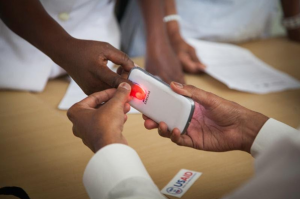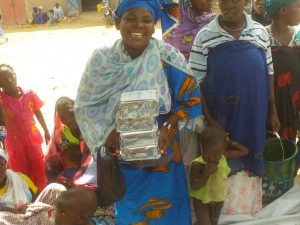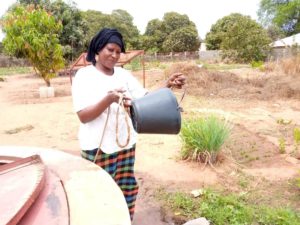Health
 On almost all measures – from the rates of child and maternal mortality, malnutrition, HIV & AIDS, and other deaths by preventable diseases, to the availability of health facilities and medical personnel – Sub-Saharan Africa presents the world’s most pressing health problems. Still, it has the fewest resources to solve them.
On almost all measures – from the rates of child and maternal mortality, malnutrition, HIV & AIDS, and other deaths by preventable diseases, to the availability of health facilities and medical personnel – Sub-Saharan Africa presents the world’s most pressing health problems. Still, it has the fewest resources to solve them.
HIV/AIDS and Tuberculosis (TB)
Challenge: PanAfricare has implemented several HIV/AIDS-related services, including prevention, care, support, and treatment to the general population and various target groups such as youth, People Living with HIV/AIDS (PLHIV), and orphans and vulnerable children.
PanAfricare plays a crucial role in working with high-risk groups, such as vulnerable women who may lack participation in decision-making or lack access to services and information, cross-border transport workers, and sex workers.
PanAfricare’s solution: PanAfricare supports integrated TB and HIV service delivery programs, including intensified TB case finding, preventive therapy, infection control, and initiation of antiretroviral therapy. Our experience indicates that successfully integrating TB and HIV services in resource-constrained environments is feasible, although programmatic, infrastructural, and staffing challenges remain. Tailored interventions are essential.
PanAfricare takes a continuum of care approach to curbing the HIV/AIDS scourge in Africa:
1. HIV/AIDS prevention and education
2. HIV/AIDS Management Training
3. HIV behavior change and communication (BCC)
4. HIV/AIDS counseling and testing
5. Prevention of “Mother to Child Transmission” of HIV (PMTCT): includes both treatment and support, for instance, by establishing and tracking and digital reminder system.
6. Provision of technical assistance for antiretroviral treatment (ART) to adults and children (including strengthening of laboratory services)
7. HIV/AIDS care and support to PLHIVs, their caregivers, and children
8. TB/HIV Integration: Includes clinical mentorship, creating functional linkages within the relevant departments
9. Provision of comprehensive services to “Orphans and Vulnerable Children” (OVC) using a family-centered approach.
10. Health system strengthening: Promote the development, implementation, evaluation, and dissemination of cost-effective policies, strategies, and interventions.
Nutrition 
Challenge: Nearly 40% of African children under five are malnourished, but surprisingly, not all children are hungry. Food consumed in some cases is not sufficiently nutritious. This is especially important in the first 1,000 days of a baby’s development, from the mother’s pregnancy through the child’s second birthday, when an infant’s physical and mental development occurs. Providing sufficient nutrients at this stage is therefore essential.
PanAfricare’s Solution: PanAfricare is committed to improving the nutritional status of Africans, reducing malnutrition, and expanding access to and options for nutritional foods to improve health outcomes on the continent. Nutrition is key to survival, wellness, and productivity – the foundation stone for social and economic development in sub-Saharan Africa. Many of our projects incorporate nutrition activities to increase demand and access to nutritious food sources. We address this through community-level training in health behaviors and improve livelihoods to increase access to highly nutritious foods. PanAfricare follows the World Health Organization’s (WHO) Essential Nutrition Action Framework 1, which focuses on the first 1,000 days in a child’s life, as the model for advocating, planning, and implementing our integrated interventions on maternal and child nutrition. Social and behavior change communication (SBCC) is vital to improving nutrition.
We focus on an integrated approach multi-sectoral and intersectional perspective and implementation of diverse nutrition-specific and sensitive interventions, some of which include:
Increased food production and Cooking Demonstrations: PanAfricare encourages families to devote portions of their land to household gardens with diverse dietary production. Rather than selling the garden’s produce in commercial markets, where farmers sell the majority of their crops, families use these sections to grow food for household consumption. Training sessions show families how to grow diverse crops and prepare nutritious meals.
Social and Behavior Change Communication is the driving force behind PanAfricare nutrition projects. Increased access to nutritious food or product is not a holistic solution. PanAfricare’s projects teach community members the value of nutrition and improve their nutrition. This way, the driving force for improved nutrition ultimately comes from within the community.
Vitamin Supplementation: Poor diets lead to critical deficiencies in essential nutrients like Vitamin A. Malnourished children need to be supplemented with the nutrients they lack. We mobilize community members to seek nutrition services at health facilities and support the Ministry of Health staff in providing access to supplementation products, especially in hard-to-reach communities. Increasing coverage of supplementation, especially for under 5 and pregnant women, is a key activity in our nutrition programming. Food distribution and screening in emergencies: PanAfricare also conducts nutrition-related interventions for emergency and disaster assistance programming. The activities include cash vouchers and food distribution to increase household access to nutrient-rich food consumption and screening campaigns at the community level to detect and manage acute malnutrition.
 Water, sanitation, and hygiene (WASH)
Water, sanitation, and hygiene (WASH)
Challenge: Sub-Saharan Africa has the lowest sanitation coverage, and roughly 70% of the population, approximately 600 million people, has no access to an improved sanitation source ( UNICEF). Open defecation is still common in many rural areas, and water-related illnesses cause incalculable suffering, often undermining many development efforts. Preventable water-related diseases claim the lives of thousands daily.
PanAfricare’s solution: PanAfricare continues to work with communities and governments to close the sanitation gap. PanAfricare is collaborating with its partners and African communities to increase essential hygiene awareness, employ behavior change campaigns, rehabilitate water points and safeguard natural water reserves so that African people can thrive and lead healthier lives both now and in the future.
PanAfricare’s interventions aim to improve the health outcomes of Africa’s neediest populations by:
1. Increasing the availability of improved potable water sources using appropriate technologies.
2. Increasing access to culturally appropriate sources of improved sanitation.
3. Ensuring sustainability by developing community-based institutions’ and technicians’ capacity for long-term infrastructure management.
4. Maximizing the health benefits from water and sanitation interventions through community-led efforts in hygiene outreach, education, and training.


